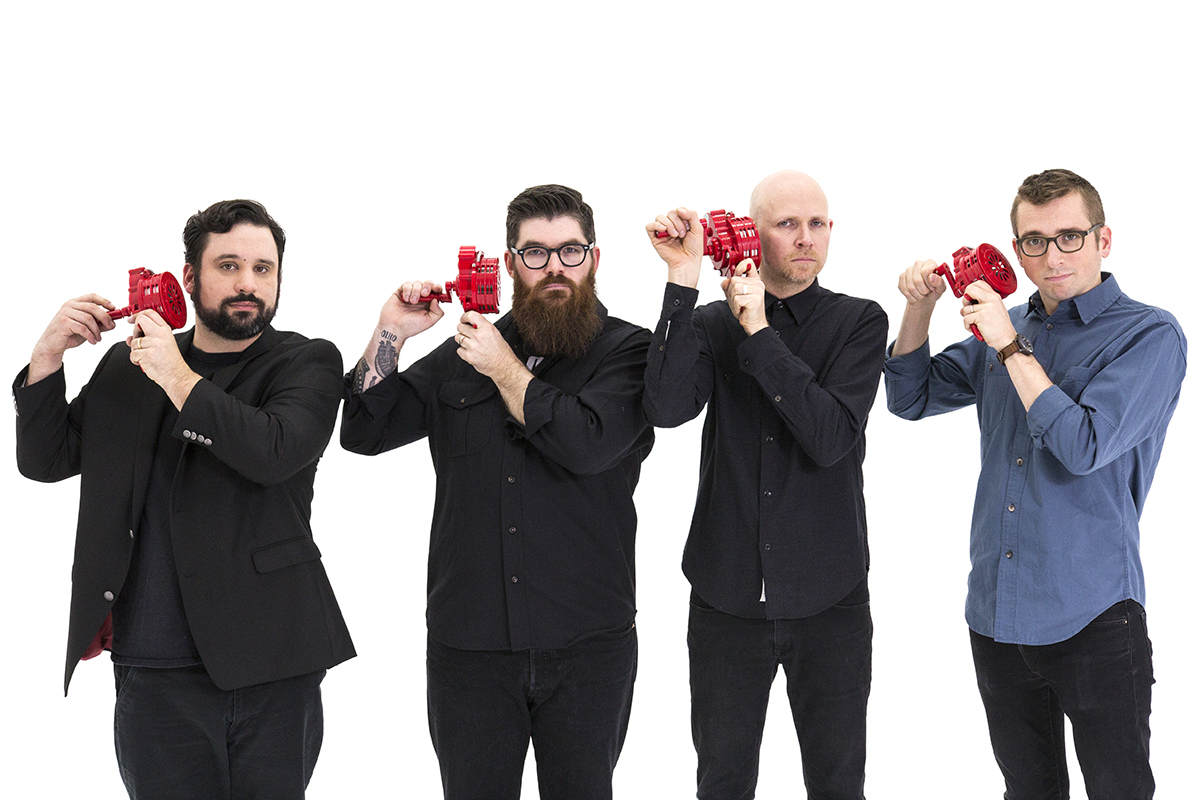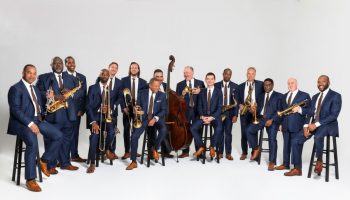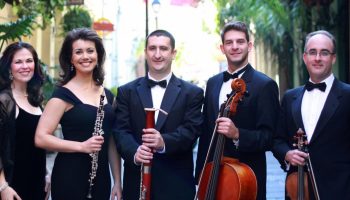
Jason Treuting’s musical mentors include the drummer for Steely Dan, a Balinese gamelan master, the timpanist of the Rochester Philharmonic, several renowned marimba players, a pianist and a jazz trumpeter.
That’s the kind of diverse training that Treuting and the other three members of Sō Percussion — Eric Cha-Beach, Adam Sliwinski and Josh Quillen — will bring to Chautauqua Chamber Music’s Guest Artist Series at 4 p.m. Monday, July 30, in Elizabeth S. Lenna Hall.
As a result of his diverse training, Treuting possess a wide range of skills — and as a percussionist, he said versatility is critical.
“Even in an orchestra, if somebody writes for a police whistle, they’re not giving it to the piccolo player,” said Treuting. “You know they’re going to give it to a percussionist. So we’re kind of always being called upon to do the other thing.”
Sō Percussion are experts in “the other thing.” When Sō performed at Chautauqua in 2016, the group played the expected drums and mallet instruments, but also used a trumpeted conch shell and the Chordstick, a newly invented instrument described on the group’s website as a cross between an electric guitar and a hammer dulcimer.
Founded in 1999, Sō Percussion has gained a reputation as the standard bearer of the percussion quartet genre. As the group’s career has developed, so has percussion music in general: The New York Times credits Sō with setting off an “explosive new enthusiasm for percussion music old and new.”
Treuting thinks the inherent nature of percussion instruments has something to do with the recent surge.
“I feel like percussion is a wonderful vessel for new things because the audience can relate, in a certain way, to the way sound is made. You can look at these objects on stage — whether it’s a drum, vibraphone or flowerpot — and everybody can imagine hitting them to make a sound. It’s very primitive in a wonderful way. But then the way these sounds and notes are put together makes something extraordinary.”
-Jason Treuting, Percussionist, Sō Percussion
The group will be playing several “new things” on today’s concert. “TORQUE,” a mallet quartet by jazz pianist and composer Vijay Iyer, was commissioned by Sō and premiered last month. Iyer’s music often explores the interconnectedness of music and human movement — fitting for Sō, as it has been praised for the choreographic quality of its performances.
Sō will also play Caroline Shaw’s “Taxidermy” and Donnacha Dennehy’s “Broken Unison,” both written specifically for the group. “Broken Unison,” also a mallet quartet, involves “crazy canons all over the place,” according to Sliwinski (a canon occurs when a melody is begun at different times by different players — think “Row Your Boat”).
Dennehy included many canons after attending a rehearsal of “Broken Unison” when the piece was still in draft form, and he saw that the quartet was particularly good at playing them. In a way, the piece is custom-made for the group’s specific strengths. “Taxidermy,” written for the group in 2012, makes use of mallet instruments, flower pots and spoken word. Towards the end of the piece, according to the composer, the group repeats the phrase “the detail of the pattern is movement,” which comes from T.S. Eliot’s “Burnt Norton.” Shaw said she loves trying — and failing — to imagine that concept, which she describes as “a kind of whimsical existentialist mantra.”
In Sō Percussion’s mission statement, the group says that it aims to create and present “new collaborative works to adventurous and curious audiences.” The group is certainly doing its half: two of the works mentioned were premiered this year, and all were written in the past 10 years.




